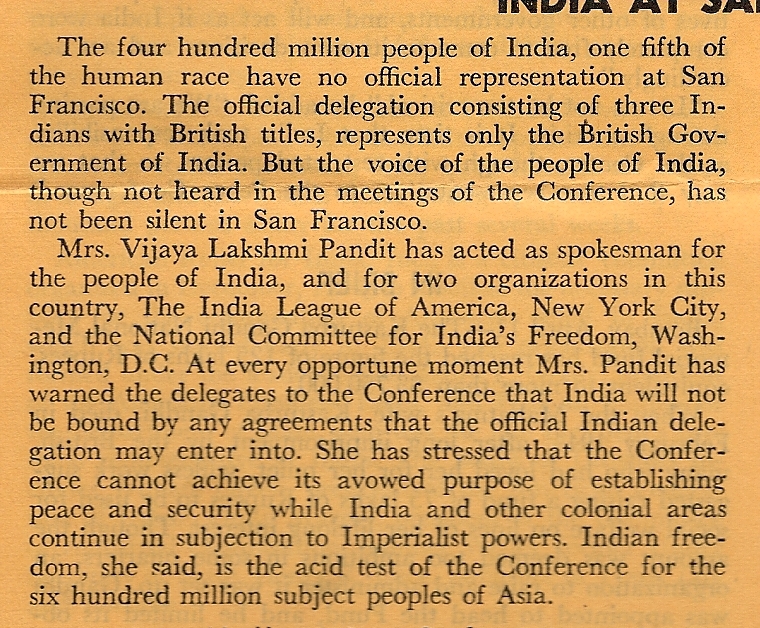The Voice of India, vol. 1 no. 1 (September 1944)- vol. 3 no. 6/7 (April/May 1947), Library of Congress.
I have copied selections from issues from September 1944-December 1945.
- Published by the National Committee for India’s Freedom
- Each issue is 16 pages long
- After first issue, each publication begins with section, “Looking Around,” which summarizes major developments in India, which is followed by an “Editorial” written by Anup Singh, the main editor.
- After the front-page articles, the publication usually ends with some combination of “Direct from India”—selections from Indian newspapers, nationalist speeches and letters, “Book Review,” and “Letters to the Editor.”
November 1945, vol. 2, no. 2: “Mrs. Pandit Calls on President”—“On October 31st, Mrs. Vijaya Lakshmi Pandit, accompanied by Hon. Emanuel Celler, called upon President Truman at the White House. She is probably the first Indian to have met the President of the United States without the usual diplomatic formalities” (197).



